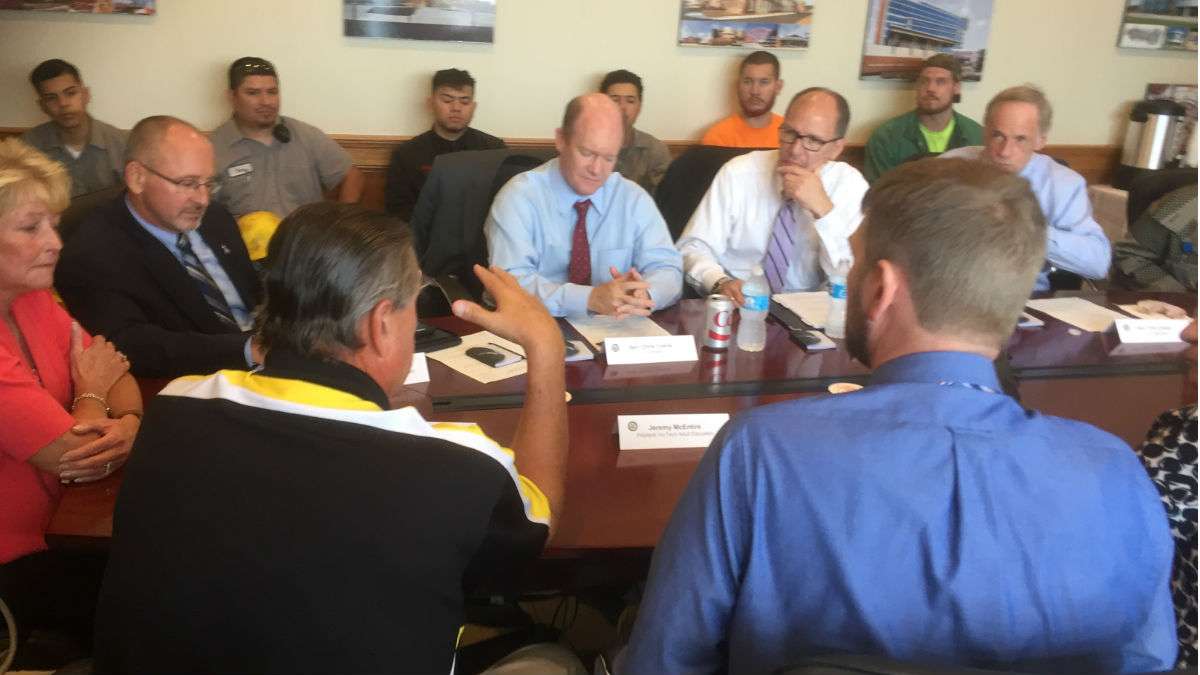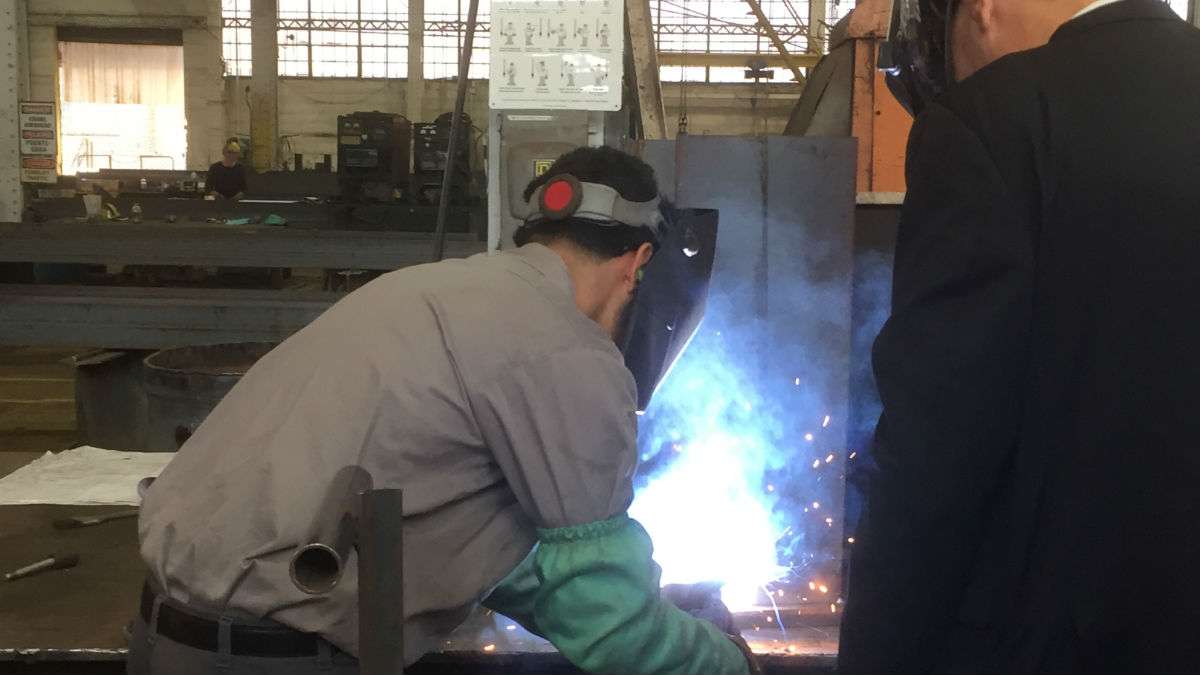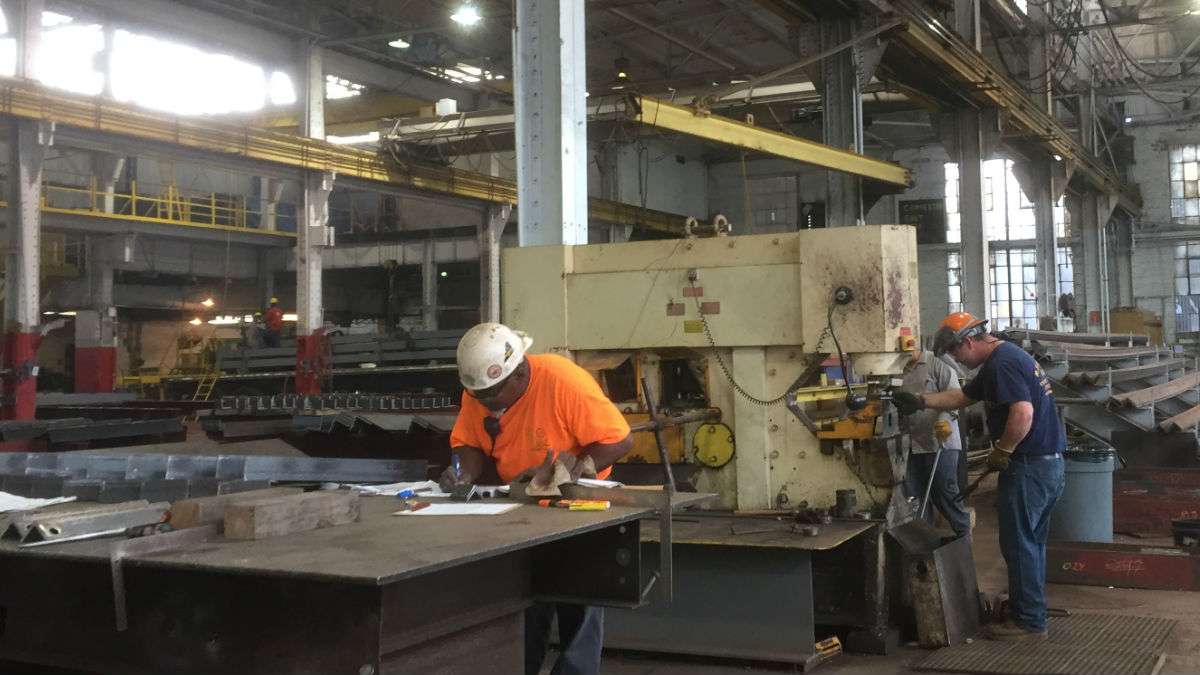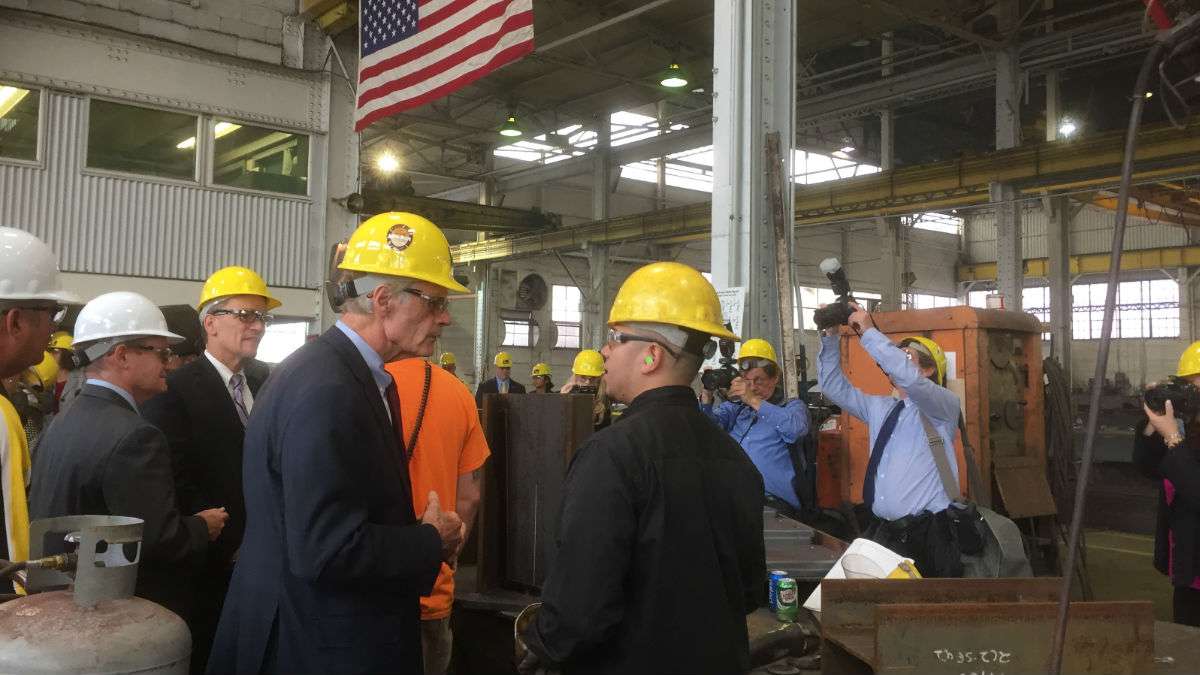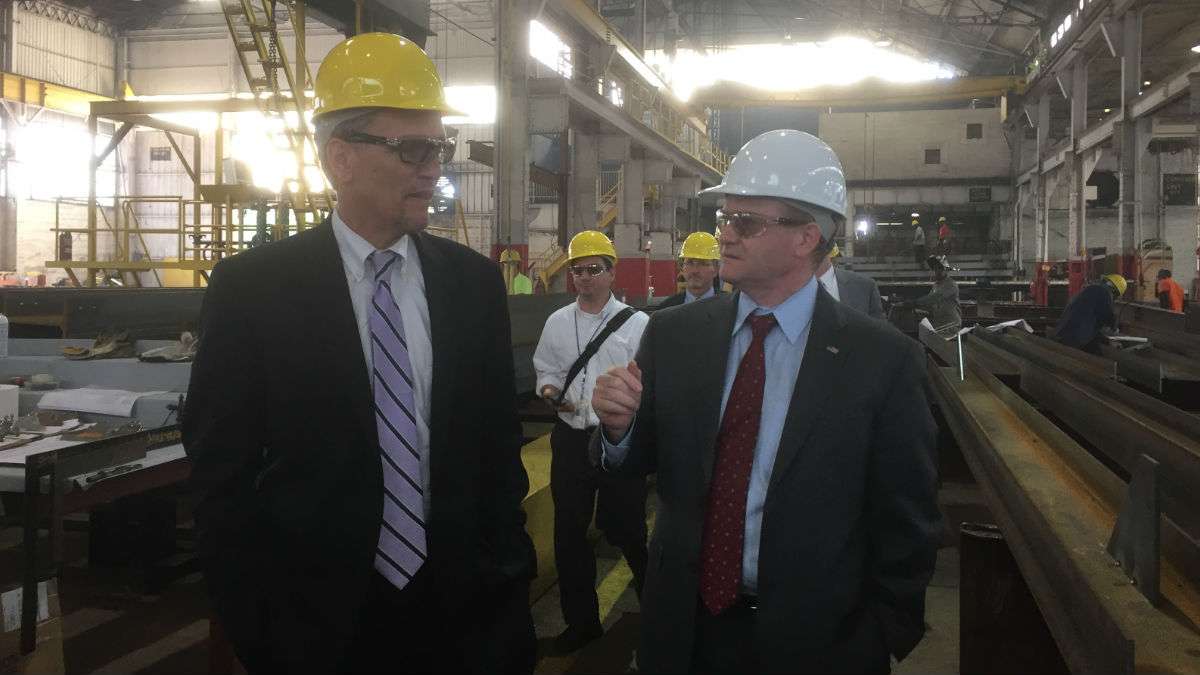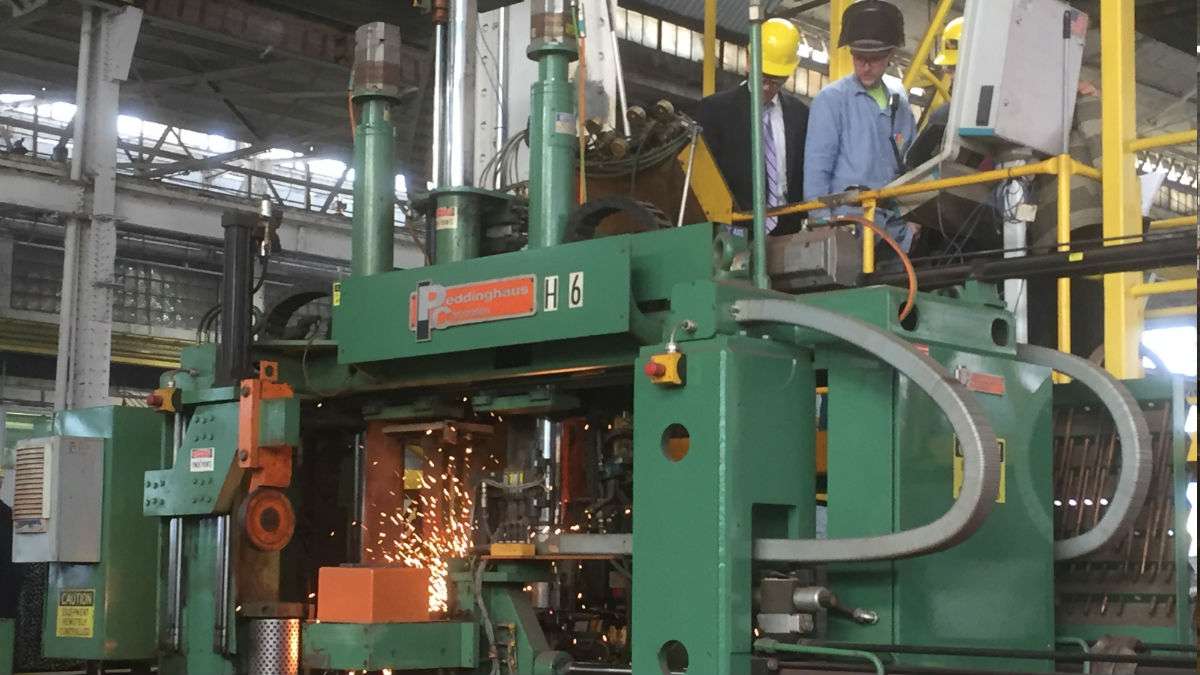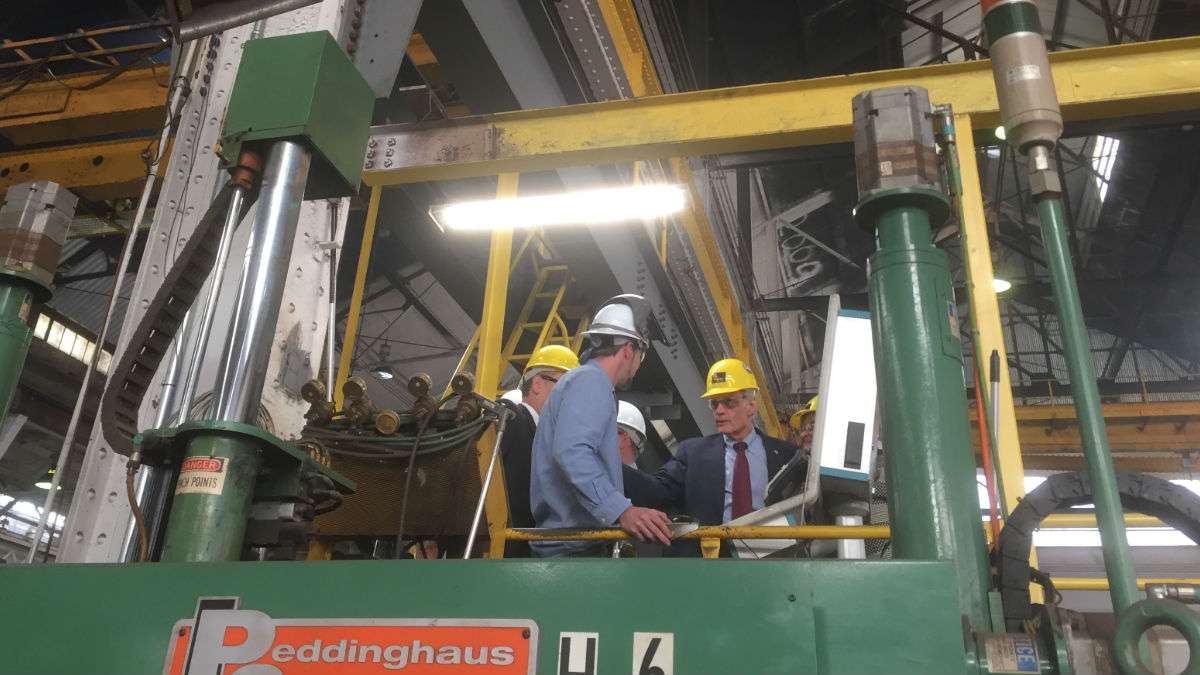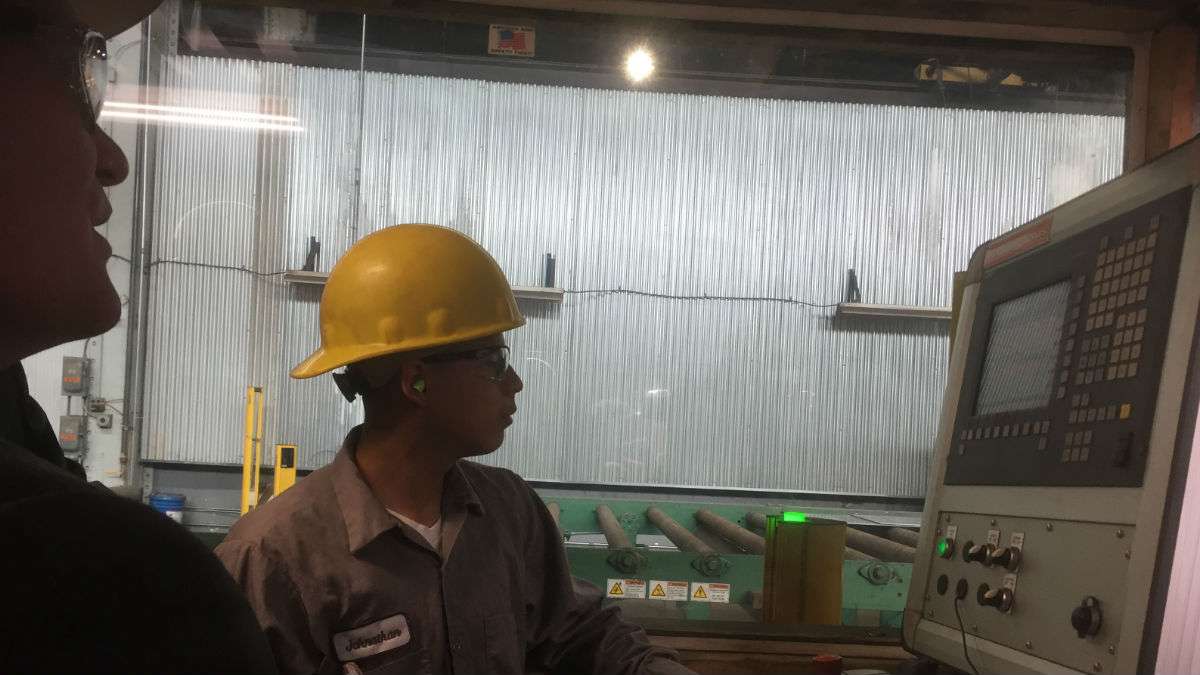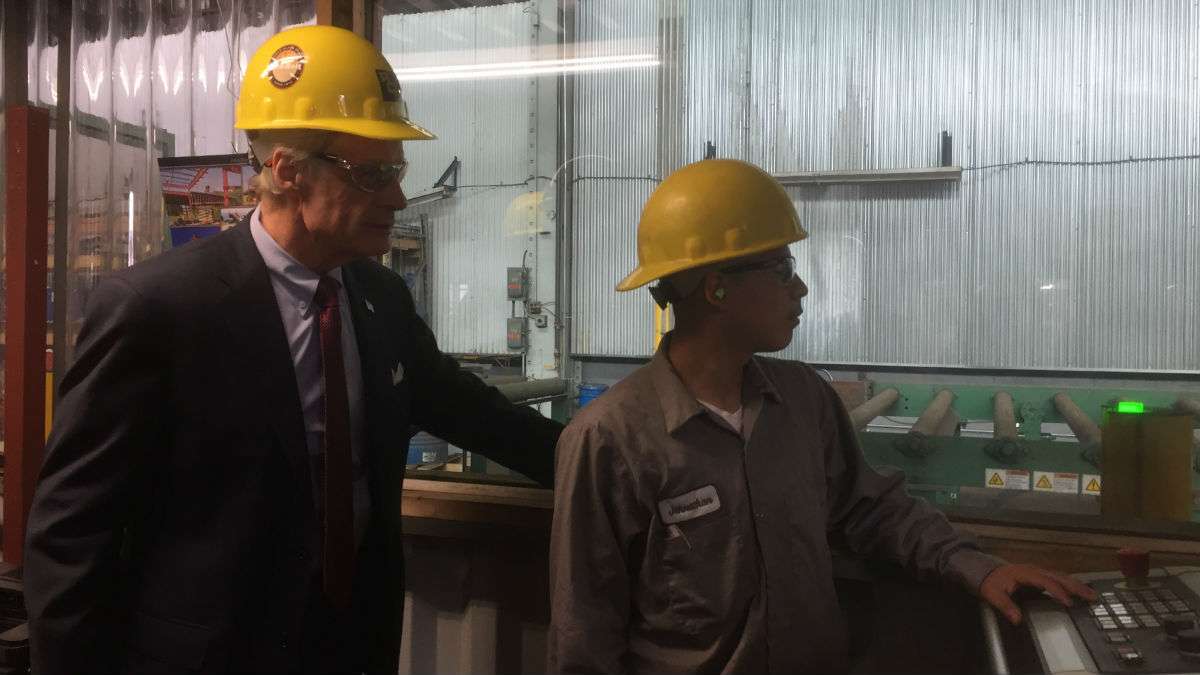U.S. Labor Sec. Perez highlights apprenticeship programs in Delaware
Delaware’s state leaders highlighted the importance of apprenticeships for trade careers on Monday.
U.S. Senators Chris Coons and Tom Carper, along with U.S. Department of Labor Secretary Thomas Perez and Delaware’s Secretary of Labor Patrice Gilliam-Johnson, got their hands dirty at a Wilmington welding factory.
Apprentices and managers at RC Fabricators gave the leaders a lesson in Welding 101, and offered a tour of the facility.
Lawmakers and RC Fabricators owners Robert and Becky Suppe then met with stakeholders in the trades industry, including those representing trade schools, to discuss how to improve and grant access to apprenticeship programs in the state.
“Businesses like this are only as good as the people who lead them and the folks who work here,” Carper, D-Delaware, said. “The key for our employees and business doing well is having a workforce that can do the work that needs to be done.”
In June, Delaware’s Department of Labor was awarded $200,000 to expand apprenticeships. Delaware currently has 1,000 apprentices, Coons said.
“Apprenticeship is the pathway toward a successful life and a great career, a middle-class life here in Delaware,” he said.
Joe Trincia, a production manager at the company who leads the apprenticeship program, said there usually is about seven or eight apprentices to about 35 employees.
“It gives them a skill, it gives them the quality they need to do and perform a quality job and put out a quality product,” he said. “It gives them the opportunity to do a good job, learn a process, make money and make a comfortable living so they can support their families.”
Perez said an apprentice in the facility told him he just graduated high school, and already is earning $21 an hour. President Barack Obama wants to double the amount of apprentices in the country, he said.
“Apprenticeship is the other college, except without the debt,” he said. “Anyone who is a welder in America, you have a middle-class job for life. The sky’s the limited. We’re seeing such a demand in these areas. But it’s not just that, it’s healthcare, cybersecurity.”
Trincia said trade companies and vocational educators need funding in order to make apprenticeship programs successful.
“The biggest thing right now is give us the funding to keep the programs going, because the schools and educators doing the training need the resources and money to do it,” he said.
Gilliam-Johnson said there has been an overall push federally and state-wide to enhance apprenticeship programs. She said she’s confident funding is available, but exactly how much is still unknown.
Department of Labor staff hope through funding they will be able to expand apprenticeship opportunities into the fields of healthcare, IT and other areas. They also would like to increase participation among women and minorities.
Stacey Laing, director for the division of employment and training, said she believes women are more than capable of taking on trades jobs.
“Think about when we had the Rosie the Riveter campaign. There was probably not a lot of women until they saw the posters that thought about going into manufacturing,” she said. “But really the sky’s the limit for women, but they haven’t been exposed to it. So it’s one of those things as more women are involved it could snowball.”
Gilliam-Johnson said school students need to be exposed to trade opportunities at a much younger age.
“Middle school clearly is an area we need to think about promoting some of this, and probably sooner than that,” she said. “And if we’re talking about bringing women in and minorities, where this is more or less a non-traditional career field, those messages need to be sent early on.”
WHYY is your source for fact-based, in-depth journalism and information. As a nonprofit organization, we rely on financial support from readers like you. Please give today.



